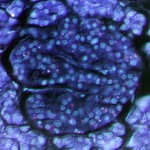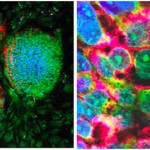Research: Will Green Tea Help You Regulate Glucose Levels?

Evidence has shown that green tea extract may be an effective herbal remedy useful for weight control and helping to regulate glucose in type 2 diabetes.

Evidence has shown that green tea extract may be an effective herbal remedy useful for weight control and helping to regulate glucose in type 2 diabetes.

A hormone, called betatrophin, that may significantly improve type 2 diabetes treatment has been discovered by scientists at the Harvard Stem Cell Institute (HSCI), according to a report published in Cell.

An update of the current state of knowledge about the impact of hypoglycemia on patients with diabetes reviews outcomes, strategies to prevent hypoglycemia, and current knowledge gaps, and has been published in the May issue of Diabetes Care.

Biologists have found a hormone in the liver that spurs the growth of insulin-secreting cells in the pancreas, a discovery they hope will lead to new treatments for diabetes.

Now a scientific review in the British Journal of Diabetes and Vascular Disease published by SAGE, suggests that fasting diets may help those with diabetes and cardiovascular disease, alongside established weight loss claims.

The discovery may someday lead to a treatment for Type 2 diabetes, the most common form of the disease. People have their own version of this hormone, and the new work suggests that giving diabetics more of it might one remove the need to be treated with insulin injections

A study led by Edralin Lucas, Ph.D., associate professor of nutritional sciences at Oklahoma State University, examined the effects of daily mango consumption on clinical parameters and body composition in obese subjects

A group of researchers from the University of Copenhagen has taken a significant step towards understanding the reasons for both diabetes and growth hormone deficiency.

SOGA, a protein that lowers blood glucose, is missing in type 1 patients. SOGA is released when insulin is released and works by blocking the production of glycogen when food is being consumed.

At TEDxSydney 2013 the Professor of Genetics at Harvard Medical School shares a new concept about why we age and how it should be possible to develop medicines to reverse it.

Consuming grapes may help protect against organ damage associated with the progression of metabolic syndrome, according to research presented Monday at the Experimental Biology conference in Boston.

Alpha-lipoic acid (ALA), a dietary supplement available over the Internet, helps improve insulin sensitivity in patients with type 2 diabetes melitus, according to a placebo-controlled pilot trial reported in 1999 in Free Radical Biology and Medicine

Obese patients hoping to slim down with bariatric surgery may soon be able to get the weight-loss effects of gastric bypass without going under the knife, according to a new study.

In 1983, a trial began that would forever alter the standard of management of type 1 diabetes (T1D) and serve as a stepping stone to future research advances—and as we mark the 30th anniversary of the trial’s inception, we are still learning from the study.

Stroke and subclinical markers of macrovascular disease are associated with cognitive decline in older adults with type 2 diabetes, according to a study published online April 11 in Diabetes Care.

Two common conditions in pregnancy may be risk factors for future diabetes according to a Canadian study of over one million women published in this week’s PLOS Medicine.

Those able to survive with type 2 diabetes for more than 40 years are more likely to have better glycemic control, lower blood pressure, and more favorable lipid profiles, according to a study published

Now a new generation of medical research and engineering has brought health care closer to a long-sought goal: small implantable devices that continuously monitor blood-sugar levels

Stevia fed rats demonstrated up to a 64% reduction compared to elevated blood glucose levels

Calorie reduction rather than the actual Roux-en-Y gastric bypass (RYGB) surgery seems to account for the improvement in glucose homeostasis in obese patients with type 2 diabetes who undergo RYGB.